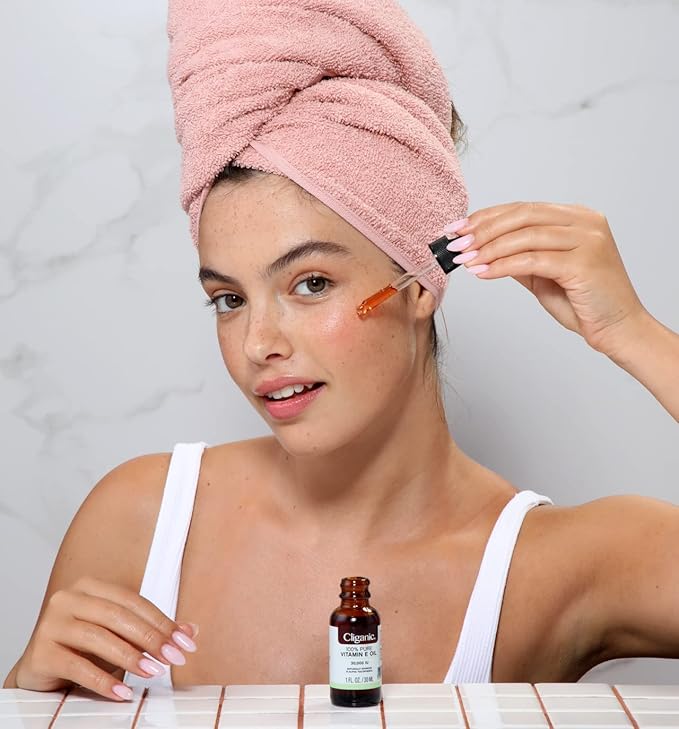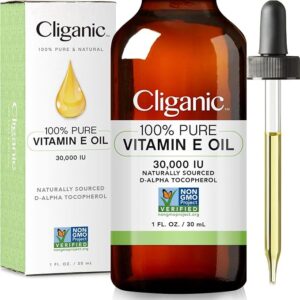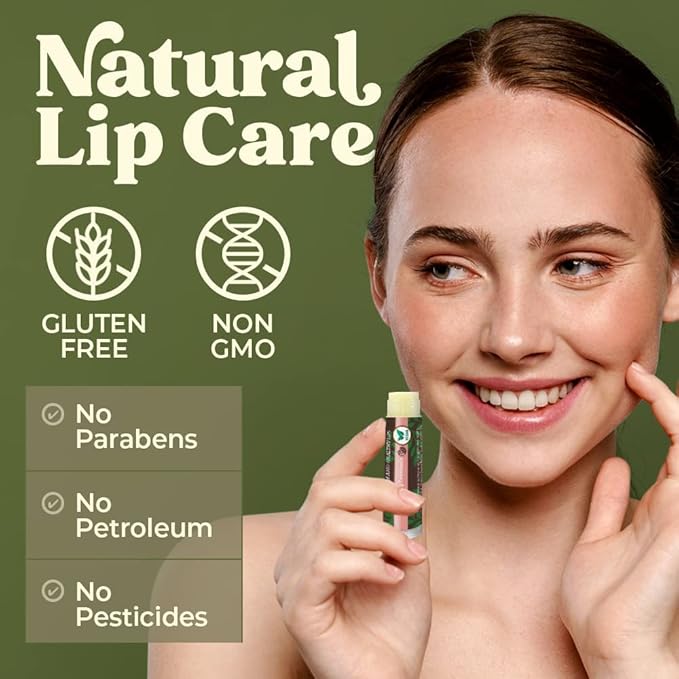Vitamin E Oil: Benefits and Uses for Skin and Hair
Introduction
Vitamin E oil, a potent antioxidant, has gained immense popularity in the skincare and haircare industries. Known for its numerous health benefits, this oil is derived from vitamin E and can be used topically or ingested through supplements. Its ability to protect cells from damage makes it a valuable addition to beauty regimens. This comprehensive article delves into the myriad benefits and uses of vitamin E oil for both skin and hair, providing in-depth insights and practical tips.
Understanding Vitamin E Oil
Vitamin E is a group of fat-soluble compounds with distinct antioxidant properties. It exists in eight chemical forms, but alpha-tocopherol is the most active in humans. Vitamin E oil is derived from these compounds and is known for its ability to combat oxidative stress by neutralizing free radicals. This property makes it a popular ingredient in skincare and haircare formulations.
Benefits of Vitamin E Oil for Skin
Antioxidant Properties
Vitamin E oil is celebrated for its potent antioxidant properties. These antioxidants shield skin cells from harm from free radicals and unstable molecules that can harm cells and hasten the aging process. By neutralizing free radicals, vitamin E oil helps maintain healthy, youthful skin.
Moisturizing Effect
One of the primary benefits of vitamin E oil is its ability to moisturize the skin deeply. Its emollient properties make it an excellent choice for treating dry, flaky skin. The oil creates a protective barrier on the skin’s surface, preventing moisture loss and keeping the skin hydrated.
Anti-Aging Benefits
Vitamin E oil is a popular ingredient in anti-aging products due to its ability to promote collagen production and enhance skin elasticity. Regular use can reduce the appearance of fine lines and wrinkles, giving the skin a smoother and more youthful appearance.
Healing Scars and Stretch Marks
The regenerative properties of vitamin E oil make it effective in healing scars and reducing the appearance of stretch marks. By promoting cell regeneration, the oil can help fade scars over time and improve the skin’s texture and tone.
Treating Hyperpigmentation
Vitamin E oil can help lighten dark spots and hyperpigmentation caused by sun exposure, hormonal changes, or acne scars. Its antioxidant properties inhibit melanin production, which can help even out skin tone and reduce discoloration.
Soothing Sunburn
Vitamin E oil’s anti-inflammatory properties make it an excellent remedy for soothing sunburned skin. It helps reduce redness, pain, and swelling while promoting faster healing of damaged skin.
Enhancing Skin Elasticity
Regular application of vitamin E oil can improve skin elasticity, making it firmer and more resilient. This benefit is particularly valuable for aging skin, which tends to lose elasticity over time.
Reducing Dark Circles
Vitamin E oil can help diminish the appearance of dark circles under the eyes. Its antioxidant properties promote healthy blood circulation, while its moisturizing effect helps plump the skin, reducing the appearance of under-eye bags and dark circles.
Benefits of Vitamin E Oil for Hair
Promoting Hair Growth
Vitamin E oil promotes healthy hair growth by increasing blood circulation to the scalp. This enhanced blood flow ensures that hair follicles receive the necessary nutrients and oxygen, encouraging the growth of strong, healthy hair.
Preventing Hair Loss
By improving scalp health and strengthening hair follicles, vitamin E oil can help prevent hair loss. Its antioxidant properties also protect the hair from environmental damage, reducing breakage and split ends.
Conditioning the Scalp
Vitamin E oil is an effective scalp conditioner, helping to alleviate dryness and flakiness. Its moisturizing properties keep the scalp hydrated, reducing issues like dandruff and itchiness.
Adding Shine and Luster
Regular use of vitamin E oil can add a natural shine and luster to your hair. By smoothing the hair cuticle and reducing frizz, the oil enhances the overall appearance of your hair, making it look healthier and more vibrant.
Repairing Split Ends
Vitamin E oil can help repair and prevent split ends by nourishing and strengthening the hair shaft. This reduces the likelihood of further damage and keeps the hair looking smooth and healthy.
Treating Dandruff
The moisturizing and anti-inflammatory properties of vitamin E oil make it an effective treatment for dandruff. By soothing the scalp and reducing flakiness, the oil helps maintain a healthy scalp environment.
How to Use Vitamin E Oil for Skin
Direct Application
Vitamin E oil can be applied directly to the skin for targeted treatment. A small amount of oil can be gently massaged into the affected area, such as scars, stretch marks, or dry patches. It’s best to use pure vitamin E oil or a product that contains a high concentration of vitamin E.
As a Carrier Oil
Vitamin E oil can be mixed with other carrier oils, such as jojoba, almond, or coconut oil, to enhance its benefits. This mixture can be used as a daily moisturizer or massage oil, providing nourishment and hydration to the skin.
In Skincare Products
Many skincare products, including creams, serums, and lotions, contain vitamin E oil as a key ingredient. Incorporating these products into your daily routine can provide the benefits of vitamin E oil in a convenient and easy-to-use form.
Homemade Vitamin E Oil Masks
You can create homemade face masks using vitamin E oil and other natural ingredients. For example, a mask made with vitamin E oil, honey, and yogurt can provide deep hydration and nourishment to the skin.
How to Use Vitamin E Oil for Hair
Scalp Massage
Massaging vitamin E oil into the scalp can improve blood circulation and promote healthy hair growth. Apply a few drops of oil to your fingertips and gently massage your scalp in circular motions. Leave the oil on for at least 30 minutes before washing it out with a mild shampoo.
Hair Masks
Vitamin E oil can be combined with other ingredients to create nourishing hair masks. For example, a mask made with vitamin E oil, coconut oil, and avocado can provide deep conditioning and hydration to the hair.
Leave-in Conditioner
A few drops of vitamin E oil can be added to your regular conditioner or used as a leave-in treatment. This can help detangle hair, reduce frizz, and add shine.
Combining with Shampoo and Conditioner
You can enhance the benefits of your shampoo and conditioner by adding a few drops of vitamin E oil to them. This can provide additional nourishment and hydration to your hair with each wash.
Potential Side Effects and Precautions
While vitamin E oil is generally safe for most people, some individuals may experience allergic reactions or skin irritation. It’s important to perform a patch test before using the oil extensively. If you have sensitive skin or are prone to allergies, consult with a dermatologist before incorporating vitamin E oil into your skincare or haircare routine.
Frequently Asked Questions (FAQs)
1. What is vitamin E oil?
Vitamin E oil is a derivative of vitamin E, a fat-soluble antioxidant that protects cells from oxidative damage. It’s used in skincare and haircare products for its moisturizing, anti-aging, and healing properties.
2. Can vitamin E oil be used on all skin types?
Yes, vitamin E oil is suitable for all skin types, including dry, oily, and sensitive skin. However, those with sensitive skin should perform a patch test to ensure no allergic reaction occurs.
3. How often should I use vitamin E oil on my skin?
Vitamin E oil can be used daily or as needed, depending on your skin’s needs. For best results, use it consistently as part of your skincare routine.
4. Can vitamin E oil clog pores?
While vitamin E oil is generally non-comedogenic, it can cause clogged pores in some individuals with acne-prone skin. It’s best to use it sparingly and monitor your skin’s reaction.
5. Is vitamin E oil effective for treating acne scars?
Yes, vitamin E oil can help fade acne scars by promoting cell regeneration and reducing inflammation. Consistent use can improve the appearance of scars over time.
6. Can vitamin E oil be used on the lips?
Yes, vitamin E oil is excellent for moisturizing and healing dry, chapped lips. Apply a small amount directly to the lips for soft, smooth skin.
7. How long does it take to see results from using vitamin E oil?
Results can vary depending on the individual and the specific skin or hair concern. Some people may see improvements within a few weeks, while others may take longer.
8. Can vitamin E oil help with dark circles under the eyes?
Yes, vitamin E oil can help reduce the appearance of dark circles by promoting healthy blood circulation and providing hydration to the delicate skin under the eyes.
9. Is vitamin E oil safe for pregnant women?
Vitamin E oil is generally safe for pregnant women when used topically. However, it’s always best to consult with a healthcare provider before using any new products during pregnancy.
10. Can vitamin E oil be used to treat eczema?
Vitamin E oil’s anti-inflammatory and moisturizing properties can help soothe and relieve the symptoms of eczema. However, it’s important to consult with a dermatologist before using it as a treatment.
11. How should I store vitamin E oil?
Store vitamin E oil in a cool, dark place away from direct sunlight to maintain its potency and prevent it from becoming rancid.
12. Can vitamin E oil be ingested?
While vitamin E supplements can be ingested, vitamin E oil intended for topical use should not be consumed. Always follow the product’s instructions and consult a healthcare provider for guidance on supplementation.
13. How does vitamin E oil compare to other oils like argan or jojoba oil?
Vitamin E oil is a powerful antioxidant, while argan and jojoba oils are known for their moisturizing and nourishing properties. Each oil has unique benefits, and they can be used together for enhanced effects.
14. Can vitamin E oil help with psoriasis?
Vitamin E oil’s anti-inflammatory properties can help reduce the symptoms of psoriasis, such as redness and itching. However, it’s important to consult with a dermatologist for proper treatment.
15. Is vitamin E oil good for nail health?
Yes, vitamin E oil can strengthen and nourish nails, preventing them from becoming brittle and promoting healthy growth. Apply the oil to your nails and cuticles regularly.
16. Can vitamin E oil be used on the body?
Yes, vitamin E oil can be used on the body to moisturize, heal scars, and improve skin elasticity. Apply it to areas like the elbows, knees, and heels for soft, smooth skin.
17. How do I choose a good-quality vitamin E oil?
Look for pure vitamin E oil or products with a high concentration of alpha-tocopherol. Ensure the oil is free from additives and preservatives for the best results.
18. Can vitamin E oil be mixed with essential oils?
Yes, vitamin E oil can be mixed with essential oils like lavender or tea tree oil to enhance its benefits. Always dilute essential oils properly before applying them to the skin.
19. Can vitamin E oil be used on children?
Vitamin E oil is generally safe for children when used topically. However, it’s best to consult with a pediatrician before using any new products on a child’s skin.
20. Is vitamin E oil effective for reducing the appearance of cellulite?
While vitamin E oil can improve skin elasticity and hydration, there is limited evidence to suggest it can significantly reduce cellulite. It may help improve the overall appearance of the skin.
Conclusion
Vitamin E oil is a versatile and powerful ingredient with numerous benefits for skin and hair. Its antioxidant, moisturizing, and healing properties make it a valuable addition to any beauty regimen. Whether you’re looking to improve your skin’s texture, reduce the appearance of scars, or promote healthy hair growth, vitamin E oil can be a beneficial and natural solution. As with any skincare or haircare product, it’s important to use vitamin E oil consistently and in combination with a balanced diet and healthy lifestyle for the best results.
LED Light Therapy Masks: How They Can Transform Your Skin









